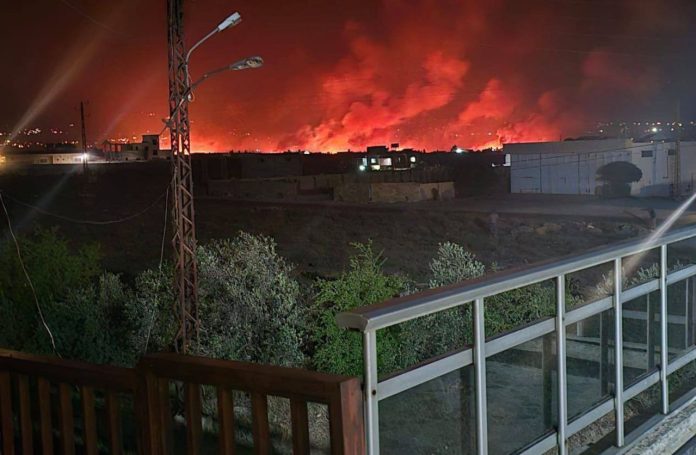The Israeli army attacked northern Lebanon near the border with Syria on Tuesday night. Explosions occurred in the neighbourhoods of Harmel and Penidak-Akhar.
Israeli warplanes carried out at least 7 attacks in the area. Hezbollah military facilities were reportedly targeted.
The mountain villages and valleys along Israel’s border with Lebanon already resemble a war zone.
The hum of intercepted rockets and drones regularly shake the air. Plumes of smoke rise from explosions on hillsides, while firefighters try to keep the flames from engulfing residential neighbourhoods. Civilians, local officials and soldiers who remain in the area say the pace of Hezbollah and Israeli strikes has increased from daily to almost hourly. Liron, deputy commander of an army unit that was crowded into a shelter during Thursday’s air alert, said:
Every week they are becoming more frequent and more intense.
He spoke on condition that he be identified by name because he was not authorised to speak to the media.
They took refuge less than 3,000 yards from the Lebanese border, in a camp they have been using for months, on what used to be the city’s football field. Liron said in the sweltering bunker:
There was no warning at all. Just boom.
Israel-Hezbollah confrontation
Israel has fought two bloody and inconclusive wars, in 1996 and 2006, with Hezbollah, the Iranian militant group that is the most powerful military and political force in Lebanon, and the two sides have been exchanging fire since the Hamas-led attacks on southern Israel on October 7.
Negotiations have languished and flared up at times without descending into all-out war. An unprecedented Iranian missile attack on Israel took place, as did numerous failed rounds of regional diplomacy. Hezbollah said it would not stop fighting until there was a ceasefire in Gaza.
As cross-border attacks have become more frequent, Israeli officials across the political spectrum have become increasingly vocal about their desire to push Hezbollah away from the border – even if it means intense fighting on two different fronts.
Herzi Halevi, commander of the Israel Defence Forces, said last week that the decision to launch a full-scale attack was imminent. The head of the Northern Command said his troops were ready.
